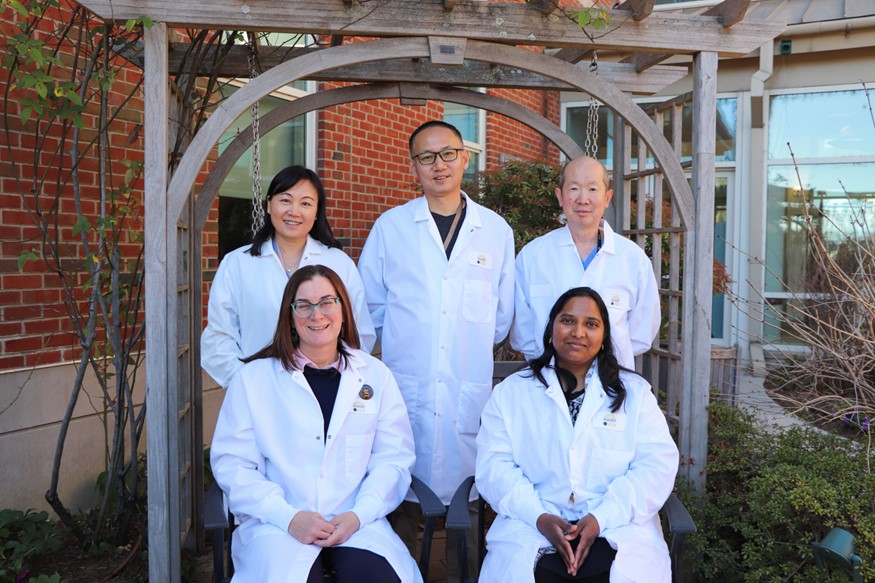 Front row L-R: Jennifer Koblinski, PhD, Madhavi Puchalapalli; Back row L-R: Li Wang, Bin Hu, PhD, Yue Zhang, PhD
Front row L-R: Jennifer Koblinski, PhD, Madhavi Puchalapalli; Back row L-R: Li Wang, Bin Hu, PhD, Yue Zhang, PhD
(This feature appeared in the March 2025 VCU Core Labs Connect Newsletter)
Cancer Mouse Models Core celebrates 10 years
The Cancer Mouse Model Core provides specialized expertise and comprehensive services to support the development of preclinical xenograft and syngeneic mouse models, including patient derived xenograft (PDX) models, as well as drug delivery methods, surgical techniques and animal procedures, including IVIS and ultrasound imaging. The core enables researchers to advance novel cancer therapeutics and precision medicine by offering reliable, high-quality in vivo modeling solutions tailored to translational research needs.
This year marks the 10th anniversary of the VCU Cancer Mouse Models Core, and what a decade of significant growth it has been! From our initial support of just 10 research teams, we've expanded to now serve over 40, a testament to the increasing demand for our services and the dedication of our team.
While our name might suggest a focus solely on cancer, I want to emphasize that our expertise
extends far beyond that. We're passionate about providing robust and reliable mouse models for a wide range of research applications. We're here to aid any researcher who needs assistance with mouse model development and implementation.
Two key areas of growth is our development of Humanized Immune System (HIS) mice and PDX models for use at VCU. The PDX models preserve the genetic and histological characteristics of the original tumor, providing a clinically relevant platform for developing and testing cancer therapies. The HIS models are essential for immuno-oncology research, providing greater translatability and enabling more precise evaluation of novel therapeutics. We ensure that our HIS mice faithfully replicate critical aspects of the human immune system. Both HIS and PDX models are maintained within a Specific Pathogen-Free Ultra Barrier environment, ensuring the highest standards of quality and reliability.
Beyond our internal advancements, we're dedicated to fostering collaboration across the Commonwealth. We actively partner with universities and research centers beyond VCU, connecting researchers with the resources they need to succeed. We're committed to building a network of expertise and resources, empowering teams to push the boundaries of their research.
We're excited to continue expanding our services and team, and we encourage you to reach out and explore how we can collaborate to advance your critical work.
Sincerely,
Jennifer Koblinski, Ph.D.
Director, VCU Cancer Mouse Models Core
About the Core
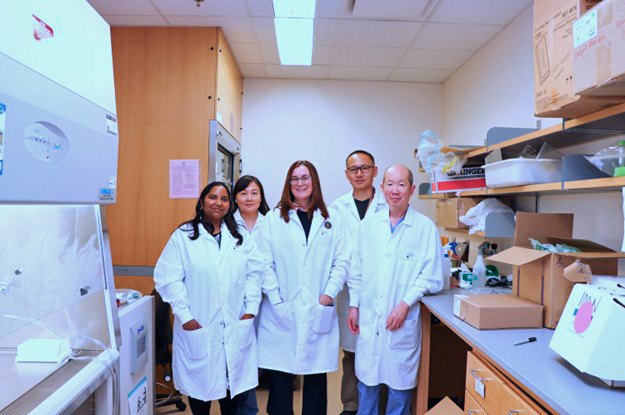 The Cancer Mouse Models Core (CMMC) aims to empower researchers to translate their discoveries into real-world impact. The CMMC provides the expertise and services necessary to develop and utilize preclinical mouse models, advancing the development of new cancer therapies and precision medicine approaches.
The Cancer Mouse Models Core (CMMC) aims to empower researchers to translate their discoveries into real-world impact. The CMMC provides the expertise and services necessary to develop and utilize preclinical mouse models, advancing the development of new cancer therapies and precision medicine approaches.
Working in close collaboration with other VCU shared resources, the CMMC offers comprehensive support for mouse model studies. This includes assistance with various drug delivery methods, surgical techniques and animal procedures, as well as access to a range of models, such as as syngeneic and xenograft models, including PDX models. By combining expertise in preclinical drug testing and cancer mouse models, the CMMC designs and executes experiments to generate reliable and robust data.
Note: The PDX are developed under the U54 CA283762 grant “United for Health Equity – Living PDX Program (U4HELPP)”; Administrative Co-leads: Jose Trevino, M.D. and Chuck Harrell, Ph.D.; PDX Core co-led by Jose Trevino, M.D., and Jennifer Koblinski, Ph.D.
CMMC Upgrades and New Equipment
Additionally, the IVIS Spectrum and IVIS Lumina S5 Preclinical In Vivo Imaging System have received a major upgrade. With a new controller and camera, this state-of-the-art system for non-invasive monitoring of cancer growth and metastasis is now more powerful and more efficient.
Driving Innovation and Impact in Alignment with Quest 2028
The CMMC is committed to supporting the university's strategic vision as outlined in Quest 2028. Our work directly aligns with the initiative's core principles, particularly in fostering research and innovation, amplifying VCU's societal impact and building a robust research infrastructure.
Driving Research and Innovation:
The CMMC is a hub for cutting-edge preclinical research. Our recent acquisition of the high-throughput VEGA ultrasound imaging and injector system exemplifies our commitment to bringing state-of-the-art technology to VCU. This system enables researchers to perform highly efficient and minimally invasive tumor cell orthotopic injections into vital organs, significantly enhancing the precision and translatability of their studies. By providing access to such advanced tools, we empower VCU researchers to innovate together, addressing critical societal challenges and solidifying VCU's reputation as a leading public research university.
Amplifying Societal Impact through Transdisciplinary Collaboration:
The CMMC is rooted in transdisciplinary connections, a cornerstone of Quest 2028's goal to amplify VCU's impact. We not only provide direct services and expertise but also act as a vital connector, linking researchers with the appropriate resources across the university. Our close collaborations with cores like the Bioimaging and Applied Research Core (BARC), Genomics Core, and the Transgenic/Knockout Mouse Shared Resource (TGKO) ensure researchers have access to a comprehensive network of support. This collaborative approach fosters a research culture that powers meaningful change, advancing our shared goal of eradicating cancer.
Building VCU's Research Infrastructure:
The CMMC's operational model is designed to be scalable, nimble and ready for growth, directly supporting Quest 2028's vision for a modern research infrastructure. We are continually expanding our capabilities and adapting to the evolving needs of the research community. By investing in advanced technologies and fostering collaborative partnerships, we are building a foundation for sustainable growth and ensuring that VCU remains at the forefront of preclinical research. Our commitment to ethics, integrity and inclusive practices further strengthens our contribution to a robust and impactful research ecosystem.
 The CMMC's dedication to supporting its researchers is exemplified through its collaboration with J. Chuck Harrell, Ph.D., associate professor of pathology, who is a leading expert in patient-derived xenografts and breast cancer metastasis. Dr. Harrell, credits the CMMC's reliable assistance with routine experimental procedures as a key factor in the continuous progress of his projects and the acquisition of numerous grants. The CMMC's services, including policy development, cost-effective resources and expert surgical support, make it an indispensable resource for VCU's research community.
The CMMC's dedication to supporting its researchers is exemplified through its collaboration with J. Chuck Harrell, Ph.D., associate professor of pathology, who is a leading expert in patient-derived xenografts and breast cancer metastasis. Dr. Harrell, credits the CMMC's reliable assistance with routine experimental procedures as a key factor in the continuous progress of his projects and the acquisition of numerous grants. The CMMC's services, including policy development, cost-effective resources and expert surgical support, make it an indispensable resource for VCU's research community.
"The CMMC has been beneficial to my lab's research in several ways," said Dr. Harrell. "Being able to consistently rely on a group to assist with routine experimental procedures allows for continuous progress on our projects."
Publications of this research:
NIH National Library of Medicine: National Center for Biotechnology Information
Meet the team:
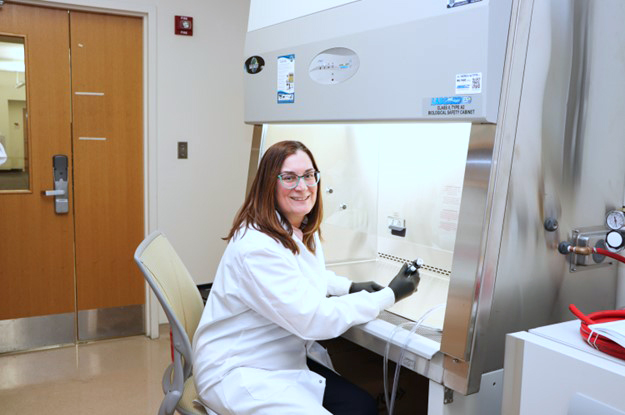 Jennifer Koblinski, Ph.D.
Jennifer Koblinski, Ph.D.
Core director
Associate professor, Department of Pathology
jennifer.koblinski@vcuhealth.org
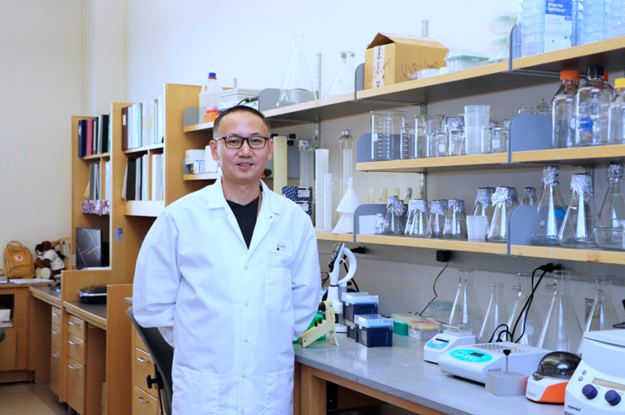 Bin Hu, Ph.D.
Bin Hu, Ph.D.
Core Manager
bhu@vcu.edu
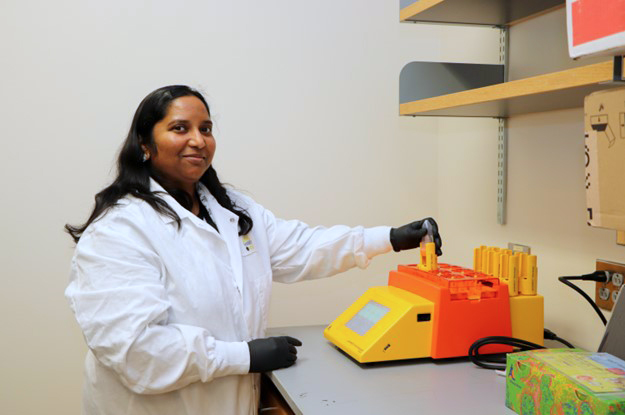 Madhavi Puchalapalli, M.S.
Madhavi Puchalapalli, M.S.
Senior Research Technician
madhavi.puchalapalli@vcuhealth.org
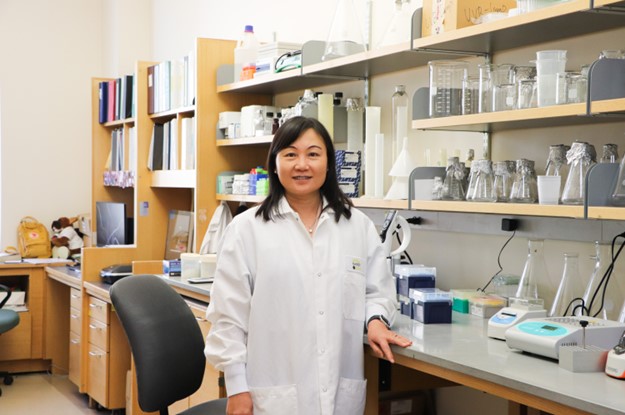 Li Wang M.S.
Li Wang M.S.
Lab & Research Specialist
li.wang@vcuhealth.org
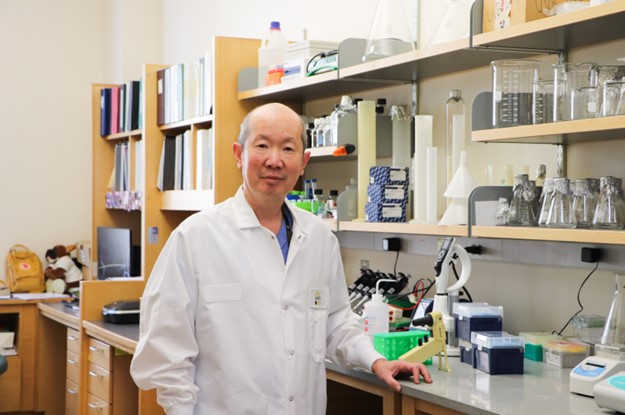 Yue Zhang, Ph.D.
Yue Zhang, Ph.D.
Lab & Research Specialist
yzhang29@vcu.edu
Cancer Mouse Models Core
Massey 1-108 and 1-112
(804) 628-5040
masseymouse@vcu.edu